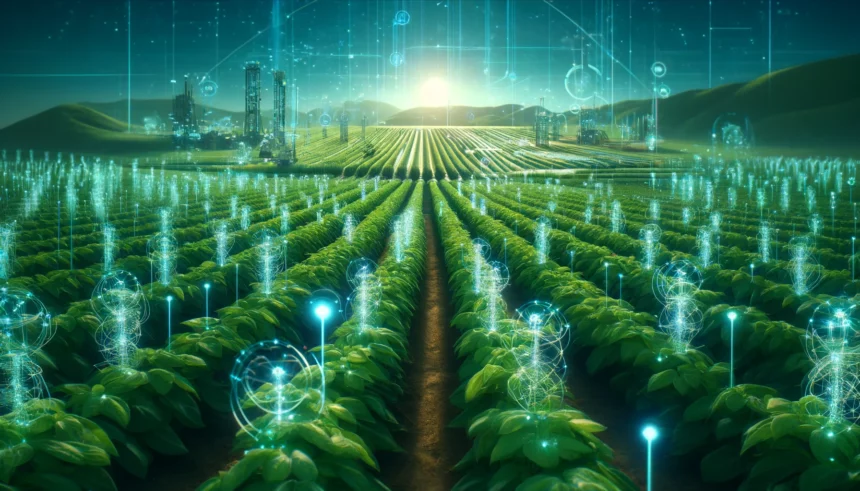Advanced technologies that once revolutionized medicine are now poised to transform agriculture. Researchers believe applying these technologies to farming is essential to meet the soaring global food demands.
What is Nanotechnology?
Nanotechnology involves manipulating materials at an extremely small scale. To put it in perspective, a nanometer is a billionth of a meter, far smaller than the width of a human hair. This technology is already used in medicine to deliver drugs precisely where needed. However, its application in agriculture is just beginning to unfold.
The Need for Efficient Agriculture
Juan Pablo Giraldo, an associate professor at UC Riverside, emphasizes the urgency of adopting new technologies in farming. He notes, “To keep up with the expected food demand in 2050, we need to increase food production by up to 60% from 2020 levels.” Current methods, particularly in agrochemical delivery, are not efficient. “About half of all fertilizers are wasted, polluting the environment. For pesticides, the efficiency is even lower, with only 5% reaching their target,” Giraldo explains.
The Promise of Nanotechnology
The review from UC Riverside and Carnegie Mellon University suggests that nanotechnology can make farming more efficient and environmentally friendly. Researchers are exploring how to use nanoparticles coated with specific molecules to direct fertilizers and pesticides precisely to parts of the plants that need them. This method could drastically reduce waste and environmental impact.
Innovative Approaches in Plant Science
One exciting approach is the development of a “digital twin” in agriculture, similar to techniques used in medical research. Here, AI and machine learning help simulate how different treatments affect plants, allowing for more precise and effective interventions.
Giraldo likens this to the technology seen in the movie Iron Man, “It’s like having an AI system to guide the development of nanoparticles, ensuring they deliver nutrients exactly where needed.”
The Future of Farming with Nanotechnology
Despite the potential, there are significant challenges to overcome. Greg Lowry, a professor at Carnegie Mellon, is optimistic. “Nano-enabled precision delivery can transform agriculture. We’re just beginning to tap into the vast benefits of plant nanobiotechnology.”
Conclusion
As the research progresses, the integration of nanotechnology in agriculture could lead to more resilient crops and more sustainable farming practices, ultimately helping to feed the growing global population more efficiently.
















